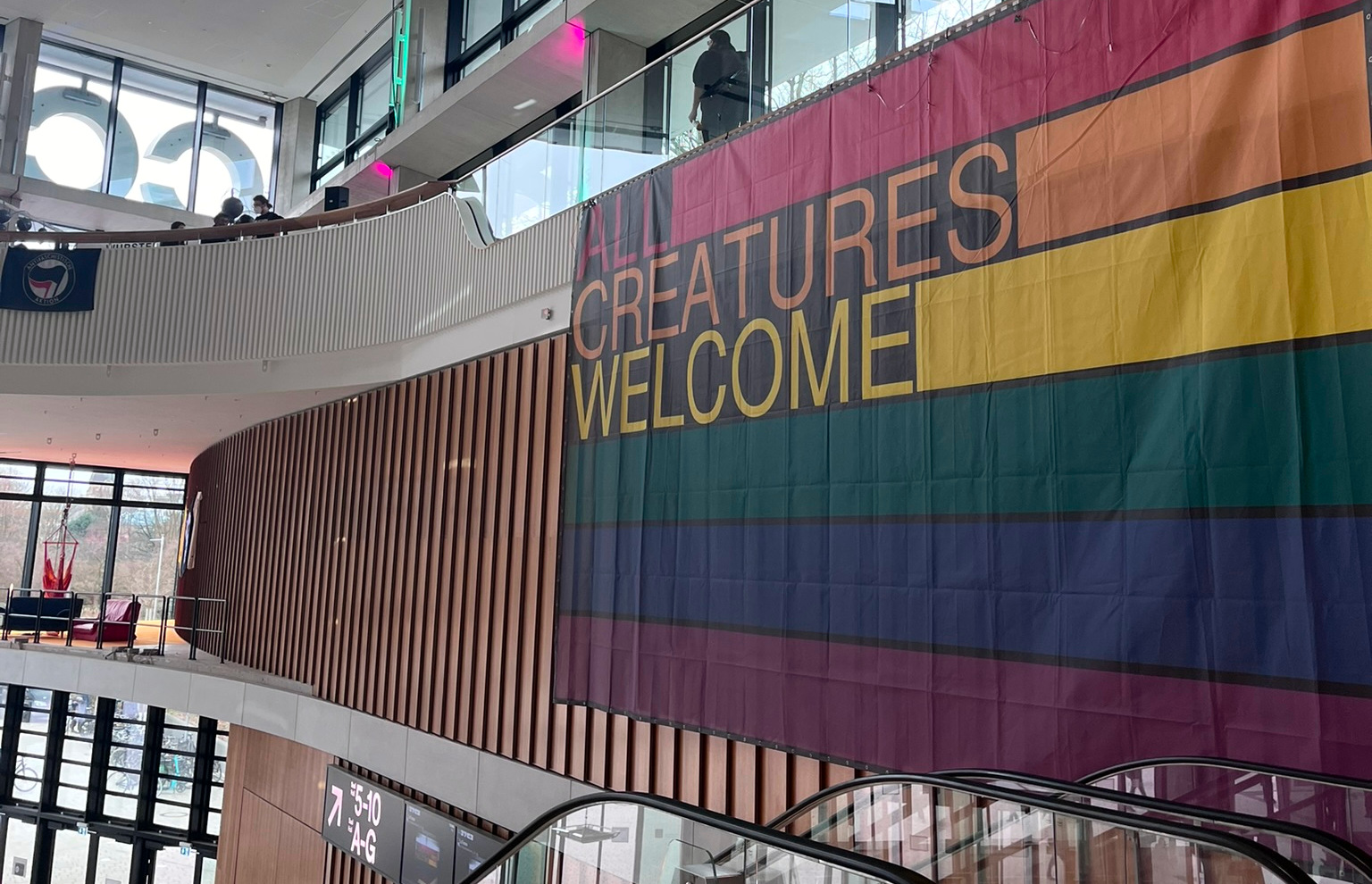 ]
]
It’s been a few years since the last Chaos Computer Congress. Same as many other people I highly enjoyed being there. Meeting with people, participating in discussions and a bit of hacking. Most of the things taking place in a congress are quite difficult to describe them in writing and most of happening outside of the presentation rooms. But stil, I thought I should share at least some sessions I enjoyed.
💡 If you use Kodi, install the relevant add-on to watch these in comfort (or any other of the apps)
Talks
-
Predator Files: How European spyware threatens civil society around the world
A technical deep dive into Amnesty International investigation about the spyware alliance Intellexa, which is used by governments to infect the devices and infrastructure we all depend on. -
Tech(no)fixes beware!
Spotting (digital) tech fictions as replacement for social and political change. As the climate catastrophe is imminent and global injustice is rising, a lot of new tech is supposed to help the transition to a sustainable society. Although some of them can actually help with parts of the transition, they are usually discussed not as tools to assist the broader societal change but as replacement for the broader societal change. -
A Libyan Militia and the EU - A Love Story?
An open source investigation by Sea-Watch and other organizations, on how EU (either directly or through Frontex) is collaborating with Tariq Ben Zeyad Brigade (TBZ), a notorious East Libyan land-based militia. TBZ were deeply involved in the failed passage of the boat that sank near Pylos, in which up to 500 people drowned. -
Tractors, Rockets and the Internet in Belarus
How belarusian authoritarian regime is using technologies to repress it's population. With dropping costs of surveillance smaller authoritarian regimes are gaining easier access to different "out of the box" security solutions used mainly to further oppress people. -
Please Identify Yourself!
Focused mostly on EU's eIDAS and India's Aadhaar, and highlighting how Digital Identity Systems proliferate worldwide without any regard for their human rights impact or privacy concerns. Driven by governments and the crony capitalist solutionism peddled by the private sector, these identification systems are a frontal attack on anonymity in the online world and might lead to completely new forms of tracking and discrimination. -
On Digitalisation, Sustainability & Climate Justice
A critical talk about sustainability, technology, society, growth and ways ahead. Which digital tools make sense, which do not and how can we achieve global social emancipation from self-destructive structures and towards ecological sustainability and a and a just world? -
Energy Consumption of Datacenters
The increase of datacenter energy consumption has already been exponential for years. With the AI hype, this demand for energy, cooling and water has increased dramatically. -
Software Licensing For A Circular Economy
How Open Source Software connects to sustainability, based on the KDE Eco initiative. Concrete examples on Free & Open Source Software license can disrupt the produce-use-dispose linear model of hardware consumption and enable the shift to a reduce-reuse-recycle circular model.
Self-organized sessions
Anyone who has paricipated in a Congress knows that there is a wide variety of workshops and self-organized sessions outside of the official curated talks. Most of them not recorded, but still I thought I should share some highlights and thoughts in case people want to dig a bit deeper into these topics.
-
Running a NGO on FreeSoftware
Fascillitated by FSFE to showcase what kind software is being used for day to day operations. Many other tech people from other NGOs participated in the discussion. -
Greg Egan's „Orthogonal“: A universe without timelike dimensions
If you are into hard sci-fi, you may have read a Greg Egan book already. My personal favorite being Permutation City. This session was focusing on the physics behind the Orthogonal trilogy. -
Can you imagine a world beyond capitalism? Exploring economic history with David Graeber's Debt
This was a nice session (and discussion) inspired by David Graeber's book: Debt, The First 5,000 Years. -
Technologies for Disaster
A workshop for people in tech running OpSec trainings (eg. Cryptoparties) for non-tech people in danger. A big portion of the discussion was around threat modeling. -
Decolonize runet! Decolonize network measurements! A provocative take on the Russian sovereign internet project
Not very familiar with Runet before this talk, a russian "sovereign internet" project. -
I pack my ICT-bag for Gaza and I take with me...
This was organized by Cadus, an emergency response organization. As they prepare on going to Gaza, the session was mostly about the challenges of preparing a humanitarian response to a conflict zone. But the discussion was also focused around the situation of communication networks in Gaza and how to workaround current limitations imposed by the Israel state.
Projects
Some quick links on projects captured in my notes based on discussions during the Congress.
- Mastodon has now an automatic translation functionality.
- Waydroid: a container-based approach to boot a full Android system on Linux.
- Snowflake importance was highlighted again by the Tor project people.
- I knew (and have used) Mobile Verification Toolkit before, but it was a good reminder to check its status and talk with journalists that can be potential Predator targets.
- Libre Graphics Meeting is back after 3 years.
Comments and reactions on Fediverse.
